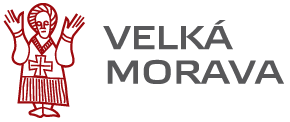Publication Ethics and Malpractice Statement
-
Authors are obliged to participate in the peer review process, respond to reviewers’ comments and make suggested modifications based on those comments. In disputable cases they can appeal to editors of the journal with particular objections or retract the paper respectively.
-
The participating authors should only include only those members who have significantly contributed to the research outcomes presented in the paper.
-
The main topic of the paper must not be published in any other journal.
-
The authors must follow the instructions for authors and observe the citation rules.
-
The authors must sign a statement that all data in their article are original and truthful (see Author’s Statement (.doc)).
-
The editors are responsible for the content of the journal and quality of the articles published.
-
The editors maintain objectivity with all articles submitted, i.e. they are obliged to avoid conflict of interest with respect to articles they reject/accept, and respect the main criteria of article selection:- professional standards and relevance of the article;- conformity of the topic with professional focus of the journal.
-
The editors are obliged to preserve anonymity of both reviewers and authors in the peer review process.
-
In cooperation with the editorial board, the editors address possible appeals of the authors against reviewers’ comments and other complaints.
-
The editors have the final responsibility and authority to reject/accept an article.
-
The reviewer has to be objective in his/her assessment.
-
The reviewer must not misuse information stated in the article under review for personal or other gain (see Review Form (.doc)).
-
The reviewer can reject a request to assess a paper for reasons of competing professional interests:- professional, financial or personal benefit from accepting/rejecting the paper under review;- collaboration on the project in question within the past five years;- fundamental difference in opinion on the main topic of the paper under review;- close professional or personal relationship to the author, or a member of the author team.
-
Unless the reviewer rejects an assessment for one of the reasons above, the editorial office takes it for granted that no conflict of interest exists.
-
The reviewer should point out relevant published work which has not been cited by the author.
-
The editorial board constantly makes efforts to improve the professional and formal quality of the journal, supports the freedom of speech, and in compliance with generally accepted ethics is always willing to publish corrections, retractions and apologies by prior arrangement.
-
Editorial board issues instructions concerning the whole editorial work (instructions for authors, guidelines for peer review process and reviewers etc.).
-
Editorial board guarantees observation of the above rules.










